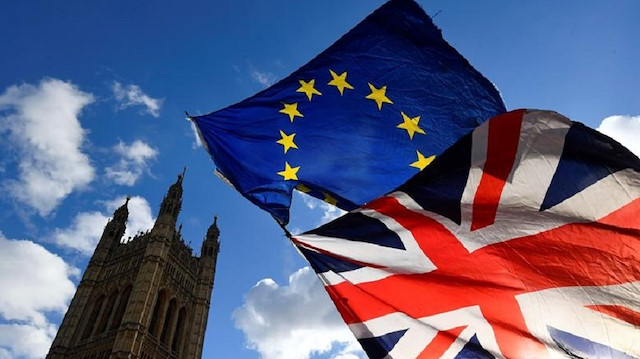
Boris Johnson searches for support for his new EU divorce deal
British lawmakers will convene in the House of Commons to vote on Prime Minister Boris Johnson’s newly agreed Brexit deal in a rare Saturday sitting.
Johnson, who took over crucial negotiations with European Union officials on the divorce deal after his predecessor Theresa May repeatedly lost parliament votes on her deal, will try to secure ratification from lawmakers.
Having lost all crucial votes in parliament since taking office, Johnson needs 320 MPs to back his deal. The numbers do not look good for the prime minister, however, as he faces the historic parliamentary session.
The leader of the Democratic Unionist Party (DUP) has already said they would not support the deal.
The last time the House of Commons held a Saturday sitting was 37 years ago during Britain’s war with Argentina over sovereignty of the Falkland Islands.
Johnson removed the whip from 21 former Tory MPs weeks ago when they voted in favor of a bill that would force the government to ask the EU for a new extension to Brexit. As they voted against a no-deal Brexit, they are not expected to vote for this new deal.
The new deal, if passed by parliament, would leave Northern Ireland aligned with the EU in customs rules so the European single market is protected. It is a concessional change to a controversial backstop clause of the previous deal, but it is also presented as a good deal to protect the Good Friday (1998 Belfast) Agreement and avoid a hard border in the island of Ireland after Brexit.
However, the new deal would also create a regulatory border between Northern Ireland and the rest of the U.K. territory – a situation the Tory government’s de facto partners Northern Irish unionists have categorically rejected.
Although all the opposition parties in Westminster have said they would oppose the deal, Johnson has claimed that his deal will receive enough support in the vote.
The historic vote will see various amendments chosen by House of Commons Speaker John Bercow, and the final vote will be held after all the amendments are voted on.
The European Union (Withdrawal) (No. 2) Act, also known as the Benn Act, requires Johnson to go back to Brussels to request a new extension from the EU.
Johnson has repeatedly said the U.K. would leave the bloc on Oct. 31 with or without a deal, but what happens on Saturday will shape the country’s future and its departure from the bloc.
Hello, the comments you share on our site are a valuable resource for other users. Please respect other users and different opinions. Do not use rude, offensive, derogatory, or discriminatory language.
The floor is all yours.








